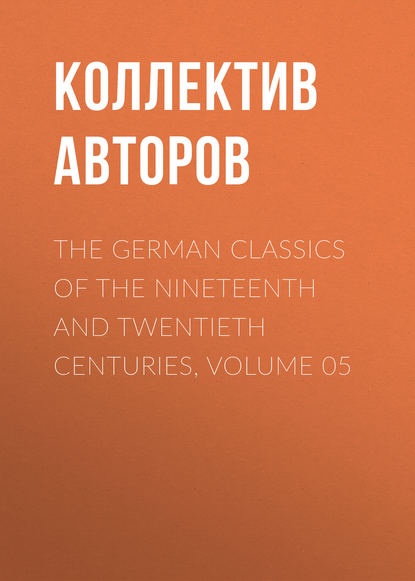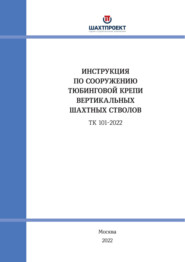По всем вопросам обращайтесь на: info@litportal.ru
(©) 2003-2024.
✖
The German Classics of the Nineteenth and Twentieth Centuries, Volume 05
Настройки чтения
Размер шрифта
Высота строк
Поля
Ah, thy first wound hast thou inflicted now!
But oh! how deep!
Hard-hearted, cruel man, now sleepest thou
Death's long, long sleep.
I gaze upon the void in silent grief,
The world is drear;
I've lived and loved, but now the verdant leaf
Of life is sere.
I will retire within my soul's recess,
The veil shall fall;
I'll live with thee and my past happiness,
O thou, my all!
* * * * *
THE WOMEN OF WEINSBERG[40 - Translators: Bayard Taylor and Lilian Bayard Taylor Kiliani. From A Sheaf of Poems, permission R.G. Badger, Boston.] (1831)
It was the good King Konrad with all his army lay
Before the town of Weinsberg full many a weary day;
The Guelph at last was vanquished, but still the town held out;
The bold and fearless burghers they fought with courage stout.
But then came hunger, hunger! That was a grievous guest;
They went to ask for favor, but anger met their quest.
"Through you the dust hath bitten full many a worthy knight,
And if your gates you open, the sword shall you requite!"
Then came the women, praying: "Let be as thou hast said,
Yet give us women quarter, for we no blood have shed!"
At sight of these poor wretches the hero's anger failed,
And soft compassion entered and in his heart prevailed.
"The women shall be pardoned, and each with her shall bear
As much as she can carry of her most precious ware;
The women with their burdens unhindered forth shall go,
Such is our royal judgment—we swear it shall be so!"
At early dawn next morning, ere yet the east was bright,
The soldiers saw advancing a strange and wondrous sight;
The gate swung slowly open, and from the vanquished town
Forth swayed a long procession of women weighted down;
For perched upon her shoulders each did her husband bear—
That was the thing most precious of all her household ware.
"We'll stop the treacherous women!" cried all with one intent;
The chancellor he shouted: "This was not what we meant!"
But when they told King Konrad, the good King laughed aloud;
"If this was not our meaning, they've made it so," he vowed,
"A promise is a promise, our loyal word was pledge;
It stands, and no Lord Chancellor may quibble or map hedge."
Thus was the royal scutcheon kept free from stain or blot!
The story has descended from days now half forgot;
'Twas eleven hundred and forty this happened, as I've heard,
The flower of German princes thought shame to break his word.
* * * * *
THE CRUCIFIX[41 - Translator: A.I. du P. Coleman.] (1830)
In hopeless contemplation of his work
The master stood, a frown upon his brow,
Where shame and self-contempt appeared to lurk.
With all his art and knowledge he had now
Portrayed the suffering Savior's image there—
Yet could the marble not with life endow.
He could not make it live, for all his care—
What is not flesh knows not to suffer pain;
Cold stone can none but stone's cold likeness bear.
Beauty and due proportion though it gain,
The chisel's marks will never disappear
And nature wake, howe'er his prayer may strain:
"Ah, turn not from me, Nature! Thou most dear,
I long to raise thee to undreamed of height—
But thou art dumb * * * a sorry bungler's here!"
There entered then a loyal neophyte,
Who looked with reverence on the master's art
And stood beside him, flushed with new delight.
To the same muse was given his young heart,
The selfsame quest of beauty filled his days—
Yet must his soul with endless failure smart.
To him the master: "Scorn is in thy praise!
If so this dull, dead stone thy mind can fill,
To death, not life, thou must have turned thy face!"
Then boldly spoke the youth: "Admire I will!
What though thy Christ for death's repose prepare
So strangely silent and so strangely still,
Yet at a great thing greatly wrought I stare,
But oh! how deep!
Hard-hearted, cruel man, now sleepest thou
Death's long, long sleep.
I gaze upon the void in silent grief,
The world is drear;
I've lived and loved, but now the verdant leaf
Of life is sere.
I will retire within my soul's recess,
The veil shall fall;
I'll live with thee and my past happiness,
O thou, my all!
* * * * *
THE WOMEN OF WEINSBERG[40 - Translators: Bayard Taylor and Lilian Bayard Taylor Kiliani. From A Sheaf of Poems, permission R.G. Badger, Boston.] (1831)
It was the good King Konrad with all his army lay
Before the town of Weinsberg full many a weary day;
The Guelph at last was vanquished, but still the town held out;
The bold and fearless burghers they fought with courage stout.
But then came hunger, hunger! That was a grievous guest;
They went to ask for favor, but anger met their quest.
"Through you the dust hath bitten full many a worthy knight,
And if your gates you open, the sword shall you requite!"
Then came the women, praying: "Let be as thou hast said,
Yet give us women quarter, for we no blood have shed!"
At sight of these poor wretches the hero's anger failed,
And soft compassion entered and in his heart prevailed.
"The women shall be pardoned, and each with her shall bear
As much as she can carry of her most precious ware;
The women with their burdens unhindered forth shall go,
Such is our royal judgment—we swear it shall be so!"
At early dawn next morning, ere yet the east was bright,
The soldiers saw advancing a strange and wondrous sight;
The gate swung slowly open, and from the vanquished town
Forth swayed a long procession of women weighted down;
For perched upon her shoulders each did her husband bear—
That was the thing most precious of all her household ware.
"We'll stop the treacherous women!" cried all with one intent;
The chancellor he shouted: "This was not what we meant!"
But when they told King Konrad, the good King laughed aloud;
"If this was not our meaning, they've made it so," he vowed,
"A promise is a promise, our loyal word was pledge;
It stands, and no Lord Chancellor may quibble or map hedge."
Thus was the royal scutcheon kept free from stain or blot!
The story has descended from days now half forgot;
'Twas eleven hundred and forty this happened, as I've heard,
The flower of German princes thought shame to break his word.
* * * * *
THE CRUCIFIX[41 - Translator: A.I. du P. Coleman.] (1830)
In hopeless contemplation of his work
The master stood, a frown upon his brow,
Where shame and self-contempt appeared to lurk.
With all his art and knowledge he had now
Portrayed the suffering Savior's image there—
Yet could the marble not with life endow.
He could not make it live, for all his care—
What is not flesh knows not to suffer pain;
Cold stone can none but stone's cold likeness bear.
Beauty and due proportion though it gain,
The chisel's marks will never disappear
And nature wake, howe'er his prayer may strain:
"Ah, turn not from me, Nature! Thou most dear,
I long to raise thee to undreamed of height—
But thou art dumb * * * a sorry bungler's here!"
There entered then a loyal neophyte,
Who looked with reverence on the master's art
And stood beside him, flushed with new delight.
To the same muse was given his young heart,
The selfsame quest of beauty filled his days—
Yet must his soul with endless failure smart.
To him the master: "Scorn is in thy praise!
If so this dull, dead stone thy mind can fill,
To death, not life, thou must have turned thy face!"
Then boldly spoke the youth: "Admire I will!
What though thy Christ for death's repose prepare
So strangely silent and so strangely still,
Yet at a great thing greatly wrought I stare,

















